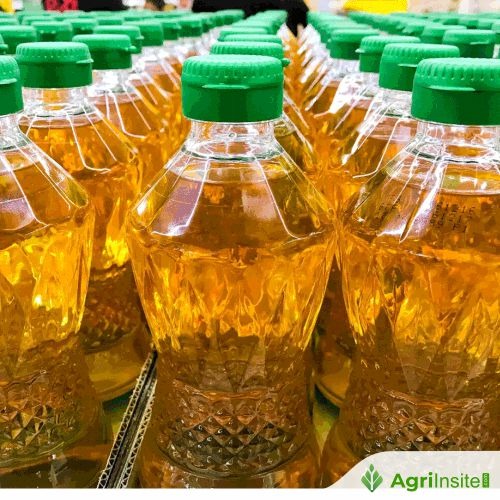Centre’s ₹1-lakh crore RDI scheme to create new opportunities for edible oil industry: SEA

India’s edible oil industry sees new opportunities from the government’s ₹1-lakh-crore RDI scheme, supporting innovation in oilseeds, processing and traceability. SEA also welcomed the ₹25,060-crore Export Promotion Mission. Despite record production and higher rabi acreage, edible oil imports stay high, prompting calls for better MSP alignment, stricter import controls, and supportive policies.
The Solvent Extractors’ Association of India (SEA) has said that the government’s ₹1-lakh-crore RDI (Research, Development and Innovation) scheme will create new opportunities for the Indian edible oil industry.
Congratulating the government for launching the scheme in his monthly letter to SEA members on Monday, Sanjeev Asthana, President of SEA, termed the scheme as a visionary step to boost technology-driven growth.
“By offering long-term, low-cost financing for high-risk, high-impact research across deep-tech, agri-tech, biotechnology, clean energy and other sunrise sectors, the scheme creates new opportunities for our edible oil industry. It can accelerate innovation in improved oilseed varieties, climate-resilient farming, precision agriculture, processing optimisation and digital traceability, helping reduce import dependence and strengthen domestic capacity of our edible oil sector,” he said.
Export promotion mission
Welcoming the government’s approval for the ₹25,060-crore Export Promotion Mission (EPM), he said this scheme consolidates export schemes into a single, digital and outcome-driven platform. Through ‘Niryat Protsahan’ and ‘Niryat Disha’, the mission will ease access to trade finance, reduce compliance burdens, and enhance market readiness for MSMEs and labour-intensive sectors.
He said SEA sees strong potential to utilise both these schemes to expand opportunities for India’s agriculture and related commodities/byproducts, in both local and global market.
Crop data
Requesting the Department of Agriculture to reintroduce the hosting of weekly sowing update data on various crops, including oilseeds, under ‘All India Crop Situation’ on its website, Asthana said this has been discontinued from last year. The data was helpful for the manufacturers/exporter of oilmeals, importers of vegetable oils as it helped in understanding the crop situation and aided in taking the planned decisions relating to import and export, he said.
On the government’s final crop production estimates for 2024-2025, he said this indicated strong gains in oilseed output at record 429.89 lakh tonnes (lt), up 32.20 lt, with soybean at 152.68 lt and groundnut at 119.42 lt, both registering double-digit growth over last year (as per official government statements).
“Such projections are encouraging for the sector. However, while higher production would typically help moderate import demand, current edible oil import levels have not yet shown a corresponding decline. This underscores the importance of continued collaboration between the Government and industry for crop estimation to ensure better market alignment and planning,” Asthana said.
Rabi crop
The data released by the Union Ministry of Agriculture indicates that oilseed acreage under rabi crops increased by over 3 lakh hectares (lh) as on November 14, and is reported at 66.2 lh.
Owing to the good prices received by mustard farmers, the area has expanded by around 3.7 lh. Rajasthan is leading in rapeseed-mustard crop and, as reported, nearly 30.5 lakh hectares have been sown, indicating completion of 85 per cent of the normal sown area. The price of mustard seed has remained above the MSP (minimum support price) of ₹6,200 per quintal, encouraging farmers to expand the area. “If the weather remains conducive, we can expect a larger crop than last year,” Asthana said.
Edible oil import bill
The Government has launched the Technology Mission on Oilseeds to boost oilseed production and reduce India’s dependence on edible oil imports, which still account for nearly 60 per cent of domestic requirement.
Stating that the quantum of edible oil imports has remained around last year’s level of 160 lt, he said the import value has increased from ₹1.31 lakh crore to ₹1.61 lakh crore, equivalent to $18.3 billion. “This is a cause of concern for both the Government and the industry, as our import dependence has not reduced, while the import bill has risen sharply. Despite the hike in MSP for oilseeds, there is an urgent need for more judicious calibration of MSPs, as the current MSP structure for rice and wheat continues to draw farmers away from oilseed cultivation,” he said.
Mentioning that the Government increased the duty difference between crude and refined oils from 8.25 per cent to 19.25 per cent in July to curb excessive imports of refined oils, he said this measure has proved effective and practically stopped the import of RBD palm oil.
However, a new issue has emerged under the SAFTA Agreement, wherein refiners from Nepal have started exporting large quantities (around 70,000-80,000 tonnes per month) of refined soybean and sunflower oils to India at zero duty. To regulate this issue, the association has strongly represented to Piyush Goyal, Union Minister for Commerce, the need to channelise such imports through NAFED or other government agencies for oils arriving from neighbouring countries, Asthana said.
Olive oil import duty
Recently, the Union Finance Ministry, in a Customs Notification dated November 14, reduced the customs duty on crude pomace olive oil to 16.5 per cent from 38.5 per cent. This development has come after continuous representations made by SEA to the Government, highlighting the need to rationalise duties and ensure a level-playing field for crude edible oils processed by the industry in the larger interest and benefit of the consumers, he said.
Crude pomace olive oil is the most versatile and consumed variety of olive oil in India and has abundant health benefits. This reduction in import duty will benefit a wide mass of India’s population to avail this oil at a lesser cost, he added.
To Read more about Edible Oil News continue reading Agriinsite.com
Source : The Hindu Business line















